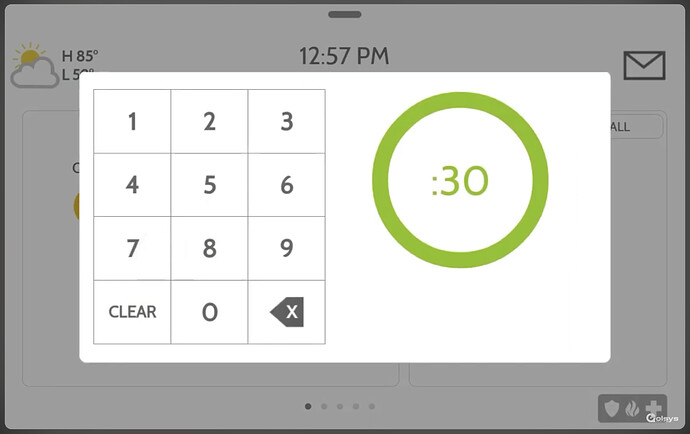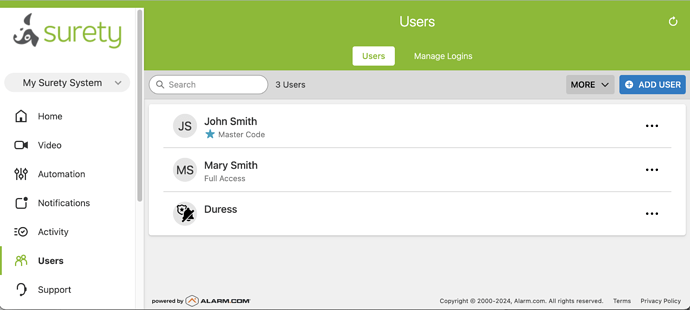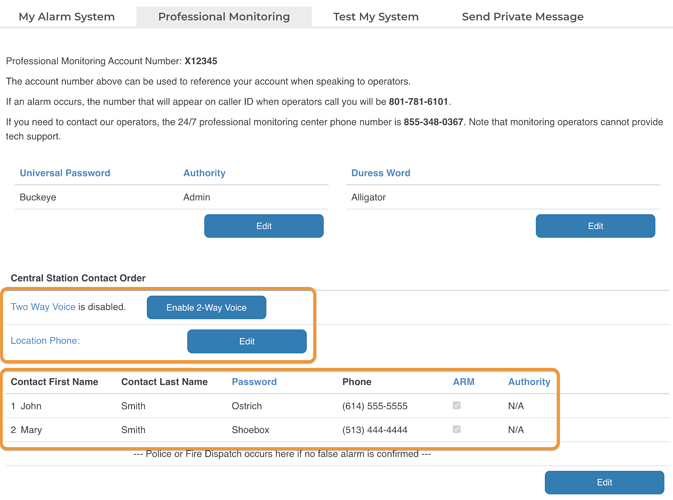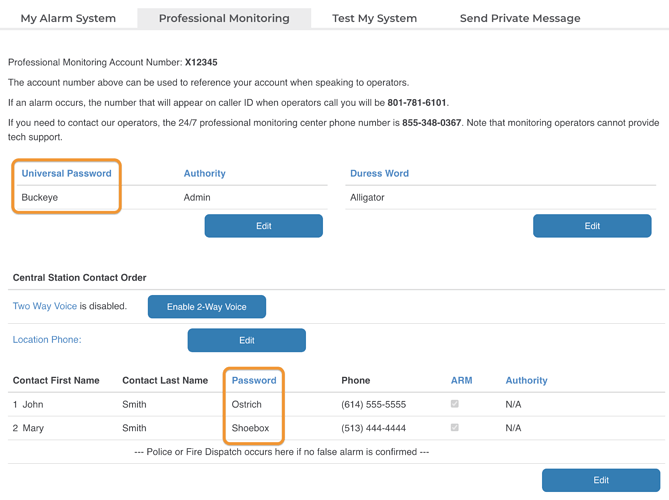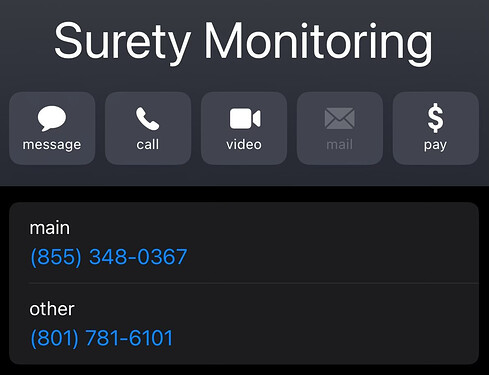Professional Alarm Monitoring
Professional alarm monitoring will send emergency responders such as the police or fire department to your home, so it’s important to understand how to use it properly.
The way a typical burglar/intrusion alarm works is:
- A door is opened when the alarm is armed which starts a countdown, giving you time to disarm the system by entering your user code.
- If you don’t enter your user code before the countdown ends then an alarm occurs.
- The monitoring center calls your alarm contacts to find out whether it was a false alarm.
- If they can’t reach you or if you don’t tell them your verbal password then they will send the police to your house.
In order to use professional monitoring successfully, you must:
- Know your alarm system user code.
- Set up your monitoring center alarm contacts.
- Know your monitoring center verbal password.
Alarm System User Codes
Your alarm system has user codes which are used to disarm your system when it’s armed. These are 4 or 6 digit numbers you enter on the alarm panel.
If you forget your user code then you won’t be able to disarm the system when you come home. The alarm will sound and you will get a call from the monitoring center.
You can still disarm your system from the Alarm.com app if you forget your user code but it’s better to remember your user code and not rely only on the app.
User codes are managed on Alarm.com under the Users tab.
Monitoring Center Alarm Contacts
When an alarm occurs, the monitoring center attempts to contact you, by calling your alarm contacts, before sending the police or fire department. See the default monitoring procedure for details.
Alarm contacts are managed on SuretyHome.com in System Manager under the Professional Monitoring tab.
When the monitoring center reaches you, they will ask for your password to verify you are the right person and not an intruder. If they can’t reach you in time to determine it was a false alarm, or if you can’t remember your verbal password, then they will send emergency responders.
Monitoring Center Verbal Passwords
The monitoring center uses verbal passwords when an alarm occurs to prove to the operator that you are not an intruder. You tell the operator your verbal password over the phone.
If you forget your verbal password then the operator will not be able to verify that you are not an intruder and may send the police to your house. It is important that you know you verbal password, and don’t forget it. You need to remember it during an alarm, which can be stressful.
Like alarm contacts, verbal passwords are managed on SuretyHome.com in System Manager under the Professional Monitoring tab.
Alarm System User Code vs Monitoring Center Verbal Password
Sometimes people confuse alarm system user codes with monitoring center verbal passwords. They’re both used to verify that you are the right person and not an intruder. Here is how they’re different.
Your alarm system user code:
- is a 4 or 6 digit number stored in your alarm system
- is used to disarm your alarm system by entering it at the control panel
- proves to your alarm system (a computer) that you are not an intruder
- is used frequently, such as every time you come home
Your monitoring center verbal password:
- is an English word stored at the monitoring center
- is used to cancel an alarm after it occurs by saying it over the phone
- proves to the monitoring center operator (a person) that you are not an intruder
- is used infrequently, only when an alarm has occurred
Monitoring Center Phone Numbers
When the monitoring center calls you, the number that will appear on caller ID is 801-781-6101. If you need to contact the monitoring center, call 855-348-0367. The monitoring center only responds to alarms and can not provide technical support.
Create a Surety contact on your phone and add both of these numbers to it so that you will see Surety on caller ID when an alarm occurs and you can call the monitoring center back if you don’t receive a call or get disconnected.
In summary, to use professional monitoring successfully you must:
- Know your alarm system user code.
- Set up your monitoring center alarm contacts.
- Know your monitoring center verbal password.

